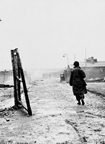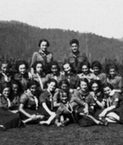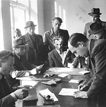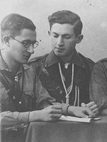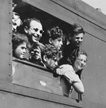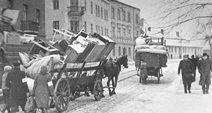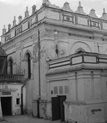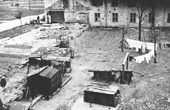The letters and postcards that survivors sent after the liberation indicate that their first priority was to locate, or at least to discover, the fate of acquaintances and friends with whom they had lost touch during the war. The letters show a craving to return to normal life as quickly as possible. Some survivors were interned in DP (displaced persons) camps; others tried to return to their erstwhile homes, a quest that usually ended in bitter disappointment. Dr. Moshe Bejski described the survivors’ situation as one of “liberation without freedom”:
[…] Yes, May 9, 1945, was a great day for all of humanity and, particularly, for the few survivors of the persecutions and the afflictions, who for five years and more had endured suffering and hardships that no power of description can capture. However, the initial spontaneous joy was instantly succeeded by the gloomy and tragic reality. It is only natural that the immediate thought and aspiration was to disengage as quickly as possible from the ghastly past and, above all, from that place of agonies and suffering, i.e., to leave the camp, the hideout, the place of exile. But the question that almost all survivors of the Nazi inferno faced at once was, What now? Where should I go? Nor was it solely a problem of physical ability or resources; the question, literally, was where to go!
Dr. Moshe Bejski, “Liberation without Freedom,” Massuah Yearbook 30, pp. 129–140 (Hebrew).
From the other side, those who had fled to Palestine or other countries immediately attempted after the liberation to locate their relatives and often received the terrifying reply: “The party in question has moved to an unknown address.”

